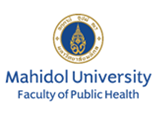[Event Report] Global Health Education Program (G-HEP) 2021-2022 – Final Presentations and Program Conclusion (February 10, 2021 – September 14, 2022)
date : 10/11/2022
Tags: Global Health
![[Event Report] Global Health Education Program (G-HEP) 2021-2022 – Final Presentations and Program Conclusion (February 10, 2021 – September 14, 2022)](https://hgpi.org/en/wp-content/uploads/sites/2/ghep2021-12-top.jpg)
Health and Global Policy Institute (HGPI) and the Faculty of Public Health at Mahidol University concluded the Global Health Education Program (G-HEP) 2021-2022. The program which took place over 1.5 years, aimed to foster global health human resources among young professionals with the theme “Solving Health Issues for COVID-19 and Urban Migration”, under the Toyota Foundations International Grant Program.
24 participants from five countries were selected to participate in the program which included a lecture component, a research component, fieldwork training in Bangkok and Tokyo, and an advocacy component. The program concluded with a final presentation of the participants’ research that was conducted during the program. A panel of experts working in the global health field attended the presentations and provided valuable feedback on the overall research design, results, and policy recommendations. to advocate for a relevant audience who have been working in this field.
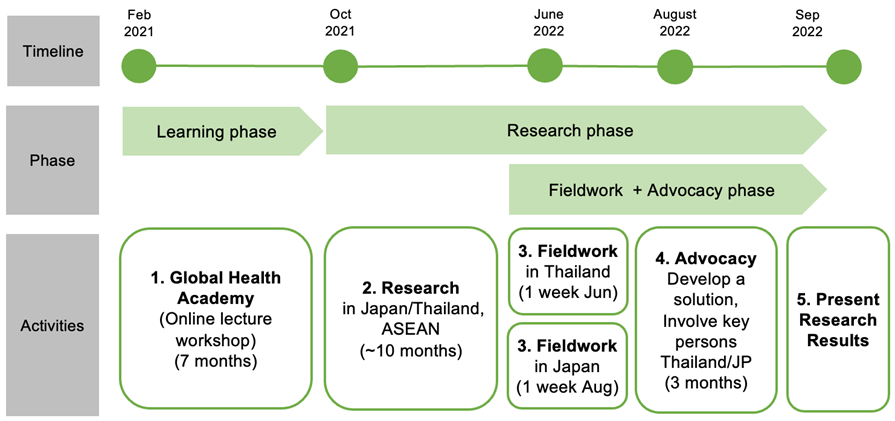
Participants were organized into four research groups and came up with their own group name and research topic.
Group A: Asian Avengers
Research Topic: Understanding COVID-19 vaccine hesitancy and acceptance among migrant workers in Thailand and Japan
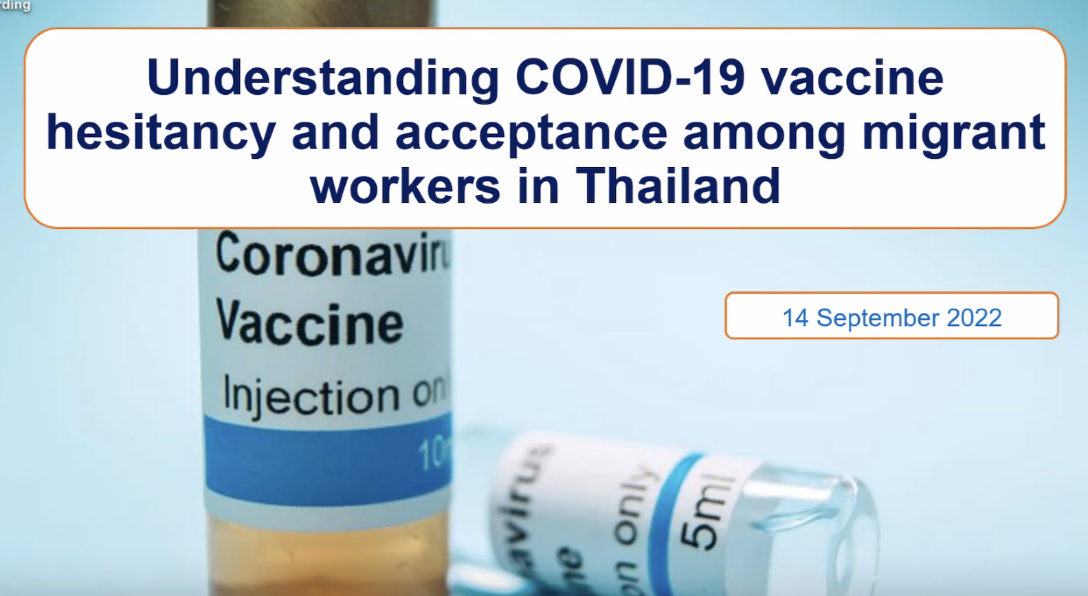
Group B: Yabai SABAI
Research Topic: Health status and working conditions of migrant care workers in Japan and Thailand during COVID-19 pandemic
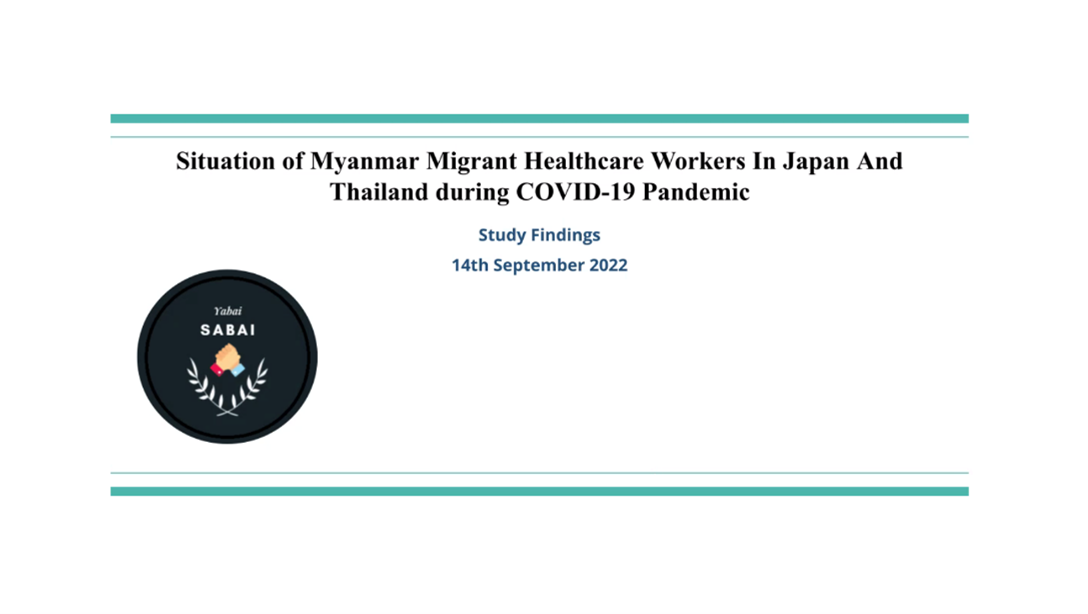
Group C: Cha Cha Cha
Research Topic: Major barriers to health services accessibility during the COVID-19 pandemic: Experiences of migrant workers and health service providers in Japan and Thailand
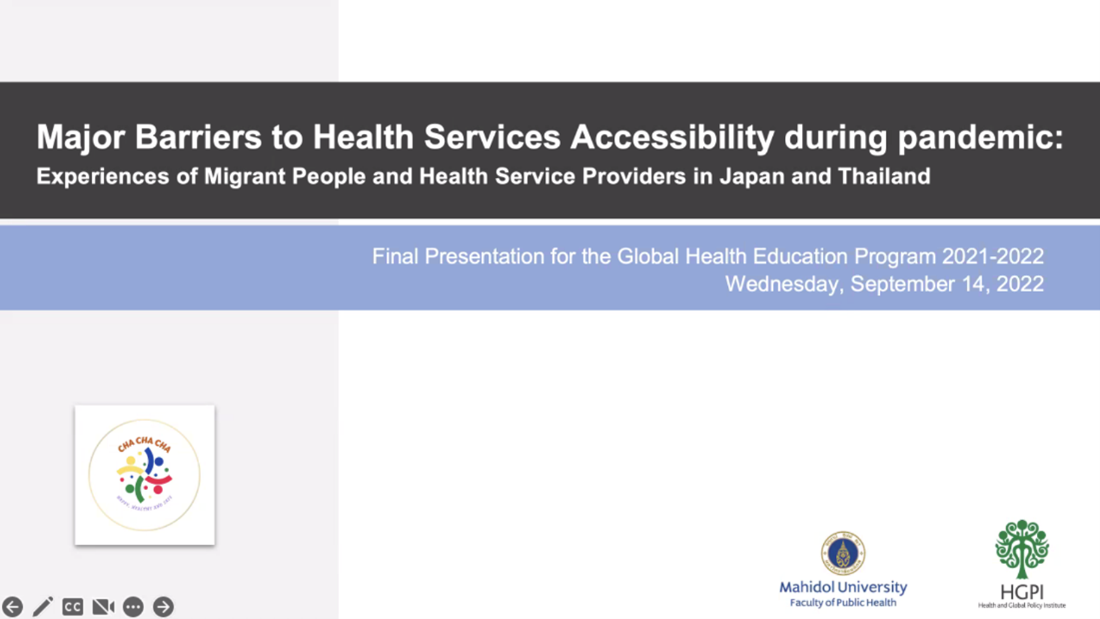
Group D: Joyful Swan
Research Topic: COVID-19 vaccine equity and perceived justice among migrants in Thailand and Japan
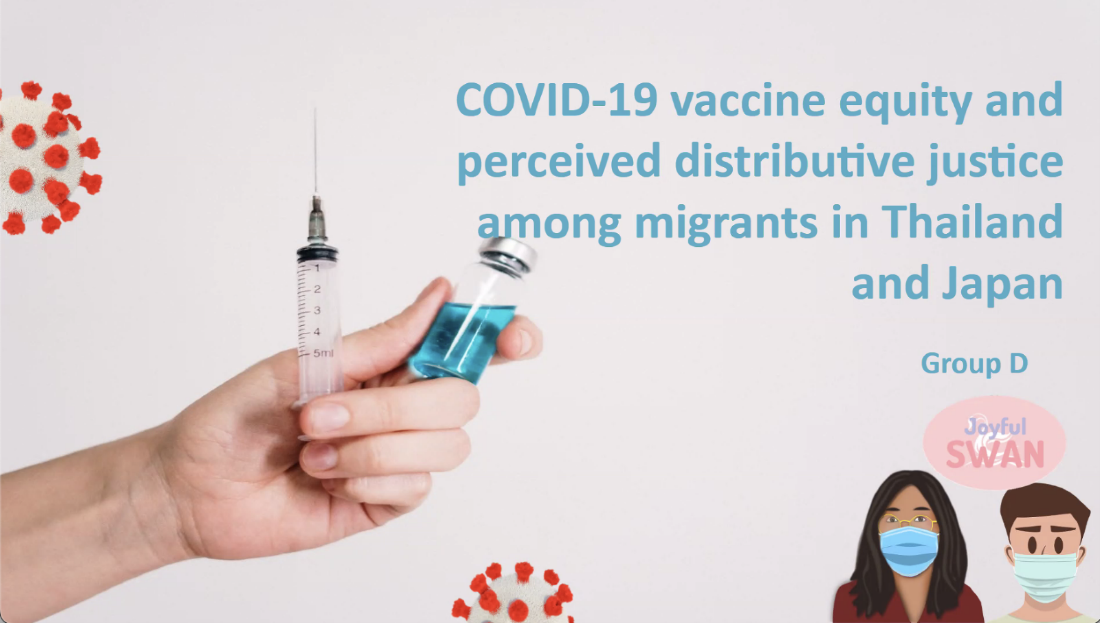
The main findings that came out of the research highlighted a number of barriers that migrants in both Thailand and Japan faced with language, understanding of the information about COVID-19 and vaccines, difficulties accessing the system, and or having the time off from work due to increase workload during the pandemic. Furthermore, many of the migrants who are living alone had no social support network. Health service providers were also challenged with a limitation of policies and funding to be able to provide equitable services to this population.
Several recommendations were presented by the groups for both governments to consider.
- Increase funding for more foreigner-friendly health services with medical translators/volunteers at facilities to reduce the burden on both the provider and patient’s side.
- Implement better education and more straight-forward communication campaigns about COVID-19, future pandemics, and vaccines, that are multilingual and can reach even the most vulnerable of migrants.
- Build systems for the rapid movement of health workers so that countries can mobilize their surplus health workers and support all populations in the midst of an outbreak.
- Create a health benefits package model for the migrant workers based on the experience of current COVID-19 response strategies that can be extendable to other diseases (e.g., mental health, non-communicable or chronic diseases).
- Establish inter-organization policy and mechanism that is integrated and implemented to improve migrant health and prepare for the next pandemic.
Countries like Thailand and Japan whose economies more and more depend on migrant workers should make efforts to build more equitable and supportive systems for this population moving forward.
Through G-HEP, by enabling the collaboration of cross-disciplinary young professionals, fostering their development, and building a network of future global health leaders, we look forward to seeing the positive changes our participants can make. We also would like to thank all of the collaborators who lent their time and shared their knowledge with the participants.
<Those Who Kindly Supported Our Activity> (Title omitted in no particular order)
- Tanarak Plipat (Deputy Director General, Department of Disease Control, Ministry of Public Health, Thailand)
- Masami FUJITA (Director, Global Networking, Bureau of International Cooperation, National Center for Global Health and Medicine (NCGM))
- Hiroyuki KIYOHARA (Department of Global Network and Partnership, Bureau of International Health Cooperation, National Center for Global Health and Medicine (NCGM))
- Myo Nyein Aung (Associate Professor of Global Health, Juntendo University)
- Yujiro Maeda (Co-founder, Premo Partner Inc.; Director, Department of Biodesign, The University of Tokyo Hospital)
- Hiroki Nakatani (Visiting Professor at the School of Medicine, Keio University)
- Reiko Hayashi (Deputy Director-General, National Institute of Population and Social Security Research (IPSS))
- Don-Eliseo Lucero-Prisno III (Professorial Lecturer in International Health, University of the Philippines; Visiting Scientist at Harvard Medical School, Harvard University)
- Aprichat Chamratrithirong (Advisor, Institute for Population and Social Research (IPSR), Mahidol University)
- Rapeepong Suphanchaimat (Director, International Health Policy Program (IHPP), Bureau of Policy and Strategy, Ministry of Public Health)
- Sureeporn Punpuing (Associate Professor, Institute for Population and Social Research, Mahidol University)
- Walunchai Juengsamranphong (Ministry of Public Health, this time to the Division of Health Economics and Health Security)
- Takashi Sawada (Minatomachi Medical Center)
- Tamotsu Nakasa (Representative, NPO SHARE (Services for the Health in Asian and African Regions)
- Akihiro Okawa (Board Member, NPO Solidarity Network with Migrants Japan (SMJ))
- Yoko Iwamoto (MIC Kanagawa)
- Yukako Takada (Citizen’s Network for Global Activities (CINGA))
- Hisano Niikura (Kalabaw no Kai)
- Pop Prach Pongkijvorasin (CHARM)
- Daihei Mochizuki (Representative, International Organization for Migration (IOM)) Japan Office)
- Kaoru Takahashi (International Organization for Migration (IOM)) Japan Office)
- Aiko Kaji (International Organization for Migration (IOM)) Vietnam Office)
- Hiroyuki Nakanishi (Officer for the Promotion of International Development of Healthcare, Medical Affairs Bureau, Ministry of Health, Labour and Welfare (MHLW)
- Masamitsu Takamatsu (Consultant, Vaccine-Preventable Diseases and Immunization Unit, World Health Organization Regional Office for the Western Pacific)
- Takuma Kato (Chief Advisor, The Partnership Project for Global Health and Universal Health Coverage Phase 2)
1) Thailand’s Health System and COVID-19
2) Japan’s Health System and COVID-19
3) Community Health
4) Health Technology
5) Global Health
6) Migrant Health
7) Policy Recommendations and Advocacy
8) Quantitative and Qualitative Research
■ Fieldworks
June 27 – July 2, 2022 Bangkok, Thailand
August 7 – August 13, 2022 Tokyo, Japan
The Global Health Education Program (G-HEP) is a joint program organized by the Health and Global Policy Institute and Mahidol University, Faculty of Public Health in Thailand.
■About Mahidol University
Mahidol University is the number one university in Thailand for medical education and the first public health academic institution in Thailand.
Vision:
Be a leader in promoting population health through being a health literate faculty in ASEAN countries by 2021.
Mission:
1. To offer an outcome based public health education through being a health literate faculty.
2. To be visible as a leader in public health education, integrative and innovative research, professional academic services on the basis of good governance to promote health and longevity and the betterment of mankind.
Top Research & Recommendations Posts
- [Research Report] Perceptions, Knowledge, Actions and Perspectives of Healthcare Organizations in Japan in Relation to Climate Change and Health: A Cross-Sectional Study (November 13, 2025)
- [Research Report] The 2025 Public Opinion Survey on Healthcare in Japan (March 17, 2025)
- [Policy Recommendations] Mental Health Project: Recommendations on Three Issues in the Area of Mental Health (July 4, 2025)
- [Policy Recommendations] Developing a National Health and Climate Strategy for Japan (June 26, 2024)
- [Research Report] The 2023 Public Opinion Survey on Satisfaction in Healthcare in Japan and Healthcare Applications of Generative AI (January 11, 2024)
- [Policy Recommendations] Recommendations on Strategic Investments in Policies for Brain Health to Revitalize Japan: Hopes for the New Administration (December 1, 2025)
- [Policy Recommendations] Reshaping Japan’s Immunization Policy for Life Course Coverage and Vaccine Equity: Challenges and Prospects for an Era of Prevention and Health Promotion (April 25, 2025)
- [Announcement] HGPI Endorses the “Belém Health Action Plan” (November 14, 2025)
- [Announcement] HGPI Joins Global Green and Healthy Hospitals (August 1, 2023)
- [Research Report] AMR Policy Update #2: WHO’s First Report on Fungal Infection—Bridging the Gap Between Clinical Practice and R&D
Featured Posts
-
2025-12-09
[Event Report] Special Seminar “Rising to New Challenges in Health Sciences for Future Society: Novel Developments in the Field of Epilepsy in Japan and Globally” Belgium Pavilion Special Seminar, World Expo 2025 Osaka, Kansai (September 18, 2025)
![[Event Report] Special Seminar “Rising to New Challenges in Health Sciences for Future Society: Novel Developments in the Field of Epilepsy in Japan and Globally” Belgium Pavilion Special Seminar, World Expo 2025 Osaka, Kansai (September 18, 2025)](https://hgpi.org/en/wp-content/uploads/sites/2/HGPI_20250805_mental-health-expo-eyechatch.png)
-
2025-12-11
[Event Report] Core Components of Universal Health Coverage (UHC): Achieving “Healthcare Without Financial Hardship” in Asia-Pacific and Japan (December 5, 2025)
![[Event Report] Core Components of Universal Health Coverage (UHC): Achieving “Healthcare Without Financial Hardship” in Asia-Pacific and Japan (December 5, 2025)](https://hgpi.org/en/wp-content/uploads/sites/2/HGPI_20251210_Core-Components-of-Universal-Health-CoverageUHC-top.jpg)
-
2025-12-12
[Registration Open] Meaningful Involvement Promotion Project Urgent Symposium “The New Takaichi Administration and Central Social Insurance Medical Council Reform – Ensuring Patients’ Voices are Heard” (January 22, 2026)
![[Registration Open] Meaningful Involvement Promotion Project Urgent Symposium “The New Takaichi Administration and Central Social Insurance Medical Council Reform – Ensuring Patients’ Voices are Heard” (January 22, 2026)](https://hgpi.org/en/wp-content/uploads/sites/2/HGPI_20251208_urgent-symposium-1.png)
-
2025-12-12
[Registration Open] (Webinar) The 140th HGPI Seminar “Early Detection to Reduce COPD Disease Burden: Connecting Clinical Frontiers with Health Policy” (January 27, 2026)
![[Registration Open] (Webinar) The 140th HGPI Seminar “Early Detection to Reduce COPD Disease Burden: Connecting Clinical Frontiers with Health Policy” (January 27, 2026)](https://hgpi.org/en/wp-content/uploads/sites/2/hs140-top.png)
-
2025-12-16
[Discussion Points] Policy Dialogue “Considering Comprehensive Genomic Profiling from the Perspective of Patient Access: Utilizing the Medical Service Fee Reimbursement System and the Mixed Medical Services Program to Meet the Needs of Today” (November 28, 2025)
![[Discussion Points] Policy Dialogue “Considering Comprehensive Genomic Profiling from the Perspective of Patient Access: Utilizing the Medical Service Fee Reimbursement System and the Mixed Medical Services Program to Meet the Needs of Today” (November 28, 2025)](https://hgpi.org/en/wp-content/uploads/sites/2/eyecatch_Policy-Dialogue_Discussion-Points_20251128.jpg)




